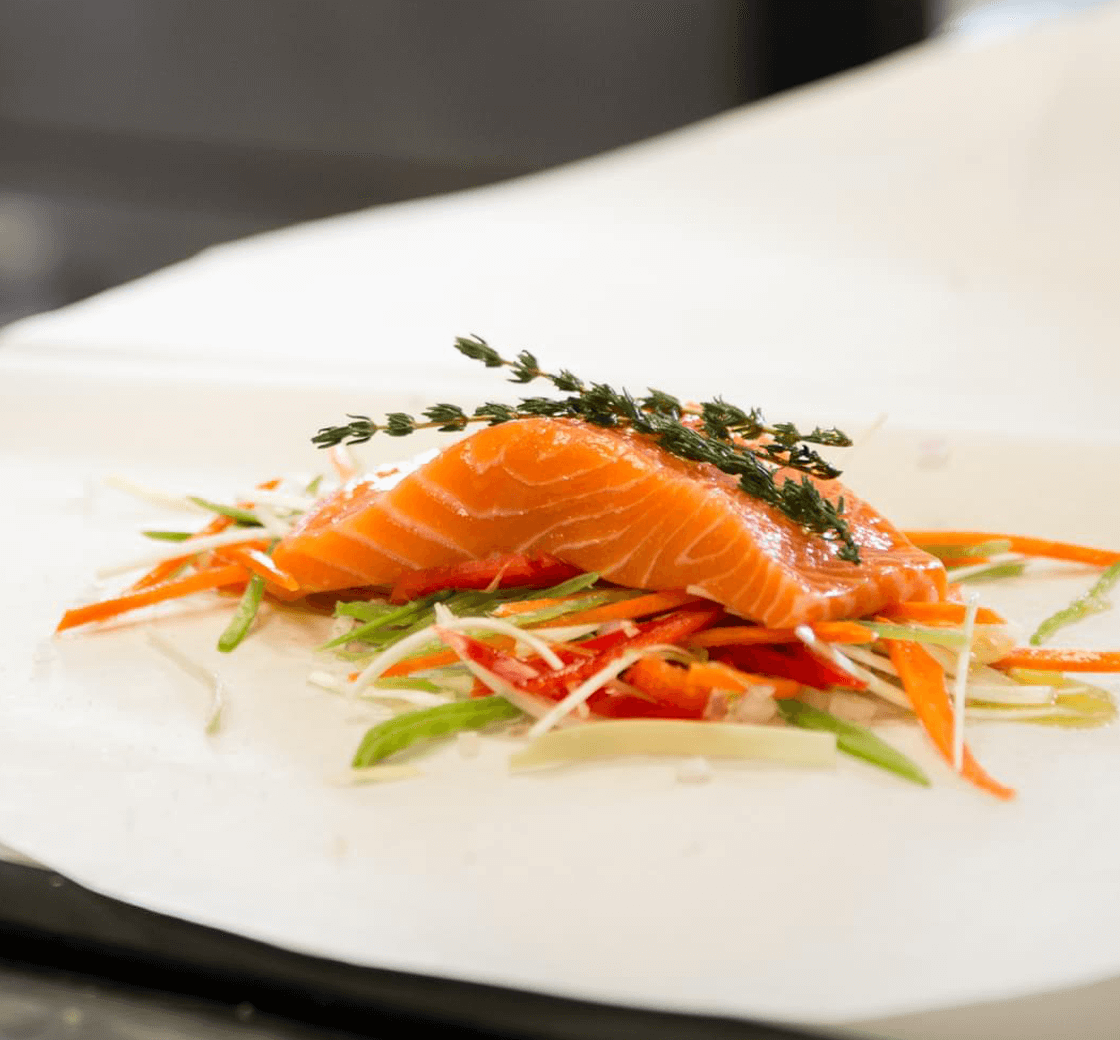
ICE’s Fine Cooking series are the classes on which our recreational program’s reputation was built. This intensive course expands on our Fine Cooking 1 series and takes a deeper dive into essential culinary techniques. These full-participation classes teach fundamental skills, not recipes. This course covers everything from fileting a fish, to properly sautéing, to cover poaching techniques and fundamental sauce making. As you advance through the series, you’ll gradually come to understand each cooking concept. You’ll have a firm grasp of ingredients and equipment; you’ll know why things happen; you'll learn how to avoid and correct mistakes. Most importantly, you’ll gain the experience you need to cook with confidence and pleasure - without relying strictly on recipes. Each class culminates with a student-prepared meal. Prerequisite: Fine Cooking 1.

You will work in teams to execute the class menu. At the end of class, participants gather to enjoy the food they have prepared. Wine is served with meals in most classes. All class menus are subject to change. While a snack platter is offered in both morning and evening classes, you may want to consider a light snack before joining us for class. Students are encouraged to bring a light lunch or dinner to all pastry classes.

You will work in teams to execute the class menu. At the end of class, participants gather to enjoy the food they have prepared. Wine is served with meals in most classes. All class menus are subject to change. While a snack platter is offered in both morning and evening classes, you may want to consider a light snack before joining us for class. Students are encouraged to bring a light lunch or dinner to all pastry classes.
Prosecco, prosciutto and provolone: some of life’s simplest and tastiest pleasures come straight out of Italy. Join ICE Director of Wine Studies Richard Vayda for a delicious discussion, as you tour some of the major wine regions of Italy while tasting traditional cheeses and cured meats. Winemaking, as well as the production of cheeses and salami, will be covered. Throughout it all, you'll enjoy a variety of scrumptious Italian pleasures, from fresh and uncomplicated to rich and complex. Un vero festival! We'll taste at least eight wines, plus matching cheeses.
The South is quite possibly the most delicious region in the country. It's hard not to love its fried...well, its fried everything, plus its braised vegetables and its mile-high pies and cakes. In the land of biscuits and sweet tea, life centers around mealtimes. Come learn a few of those Southern favorites, including: pimento cheese; Southern fried chicken; slow-roasted barbecue ribs; biscuits with honey butter; and braised collard greens. You will sip on sweet tea to complete your feast.
If you're ready to take a deep dive into the world of fish butchery, this class is for you. Join us to learn the art of breaking down both round and flat fish with skill and finesse. From perfecting filleting technique to deskinning and deboning, you'll leave with the confidence to handle a variety of fish preparations in your own kitchen. This class will provide a foundation for you to feel confident tackling fish butchery. While not a requirement, it helps to have practiced the skills of Knife Skills 1 before taking this class.
Master the art of classic Afternoon Tea in this 3-hour, hands-on class! You'll prepare a delectable spread from scratch, including light and fluffy scones, homemade strawberry jam, and rich clotted cream. Learn to bake a perfect Victoria Sponge and assemble delicate cucumber and smoked salmon finger sandwiches. Impress your friends and family with your newfound skills!
Ranked as America’s Best Culinary School (USAToday 2019), our roster of Chef-Instructors have run top kitchens around the globe.
| (Separate multiple addresses with commas like: john@aol.com, jane@aol.com) | |